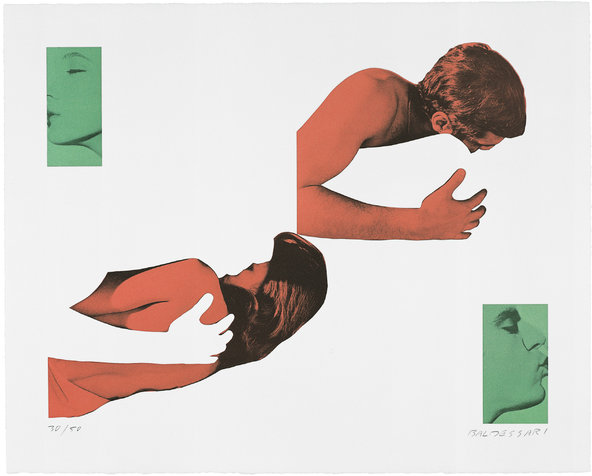You have no items in your cart. Want to get some nice things?
Go shopping
This morning my alarm went off at 8. I checked my phone for any new messages immediately, a bad habit, and saw I had a new follower on Instagram so I opened the app. At 8.30 I found myself still on Instagram, scrolling through my friend’s sister’s pictures from three months ago. Too often I find myself in this situation, putting my phone down angrily, thinking “that’s another half hour wasted, good job.” But I can’t stop. I am constantly looking at pictures and uploading pictures that I think will make my Instagram look ‘pretty.’ I don’t understand why I do it; I know it’s stupid.
When all of my interests are on one tangible source, it is so easy to explore them just by tapping on someone’s page. It is accessible and simple. The main reason I’m on Instagram is to see friends’ pictures and share pictures with friends, but I’m also following people I don’t know – musicians, foodies, fashionistas and photographers. It is a means of communicating with people, and learning new things. At least that’s what I tell myself.
The selfie trend is one that has brought much debate. On one hand, it is lovely that people are proud of how they look and want to share photos of themselves that they are happy with, it is empowering. On the other hand, it is frightening to see how people rely on likes to feel of worth, to gain a confidence boost. I am not one to count likes, to hashtag certain words in order to get likes, to pose for likes. I just want to make my page look nice as well as to represent me and what I enjoy doing. But when I say this I find myself cringing awkwardly and questioning what on earth I am doing, and why I am doing it. Why can’t I just tell my friends what I’ve been up to, instead of posting it online for people to see? I find it embarrassing when my friends say to me “that was a nice picture you posted,” or talk about my Instagram or other social media platforms. Why am I embarrassed? Maybe because I am not particularly talented in receiving compliments, or maybe because I am embarrassed at having uploaded the picture in the first place. Yet still I carry on.
A friend of mine has thousands of followers on Instagram. She uploads pictures captioned “outfit of the day” and rakes in hundreds of likes and comments about how beautiful she is, and what great style she has. I see users like her and wonder how they have managed this social media fame and why. Perhaps it is because instead of posting pictures of books, friends and food as I do, they post pictures of their legs and recent purchases, a recurring theme on pages with many followers. What does this say about our society? We are so image conscious and obsessed with consumerism. So why do I question my profile when I see theirs and consider mine inferior in comparison? Because I have bought into this culture that appreciation comes from others, not from ourselves.
It is frightening how hooked I am on Instagram. I like to think I am not as dependent on our consumerist culture as I am, but it is addictive. I want to know what’s going on in the world, what trends are being set, what new recipes I could cook tomorrow. I want to stare open-mouthed at my screen at a man spinning, throwing and catching a woman on his feet as they practice Acroyoga. I want to see new clothes that my favourite clothes shops are selling. And there is the problem. An outlet that was a means of sharing photos is now being exploited by companies. News of sales, of discounts, of freebies are put up all over Instagram, enticing people to buy. We are unable to release ourselves from the consumerist grip. We see a page with thousands of likes, we assume it is a good page, we look, we tap follow, and we are again engaged in the trap. Everything seems to be a means of selling. Whether it’s clothes, food, new gadgets, our ourselves. We see each other in terms of photographs, we know about each others lives through social media. Everything is immediate, our lives are on show and we know everything about each other, or everything that people want to share. We want to know what people are doing 24/7. There is no intimacy between us anymore.
A Ted talk I came across recently by Sherry Turkle in 2012, funnily enough through social media, comments on how technology is redefining and warping our relationships. She named her talk “Alone Together,” a painfully real description of how we truly are three years on in 2015. Turkle frankly describes how we consider ourselves, “I share therefore I am.” We attempt to show our presence in the world through sharing photos and information about ourselves. She states, “we use technology to define ourselves by sharing our thoughts and feelings while we are having them….People want to customise their lives… texting, emailing, posting. All of these things let us present the self that we want to be. We get to edit, and that means we get to delete, and that means we get to retouch.” This is a phenomenon she calls the “Goldilocks Effect.” Unable for the messy reality of relationships and intimacy, we want to control the levels through technology, “not too little, not too much, just right.” This is exactly what is happening on Instagram. We don’t bat an eyelid at the photoshopping, exploitation and tailoring that happens. It is normal, even expected.
We are now seeing a development; people are exploring what could happen if we turned to only technology for relationships. The film ‘Her,’ a devastating film about computer software that acts as a person, responds as a person would and that supposedly has feelings, demonstrates what could happen if we were to consider technology as replacements for humans. It is a frightening concept, but one that we could face in years to come. Luckily my addiction to Instagram and other forms of social media is not at the level of having a relationship with a machine, however I can see that our inability for real intimacy and our need to control our relationships could allow technology to progress to this extreme. We use technology as a means of communicating with people, instead of just communicating.
Turkle ended her Ted Talk by saying, “technology is making a bid to redefine human connection, how we care for each other, how we care for ourselves. But its also giving us the opportunity to affirm our values and our direction…Our fantasies of substitution have cost us. Now we need to focus on the many, many ways technology can lead us back to our real lives, our own bodies, our own communities, our own politics, our own planet. They need us.” But how do we get back? I’m determined to try. I’ll keep you posted…

About Isabel Gonzalez-Prendergast
Isabel is particularly interested in international literature, learning about different cultures and philosophies.

